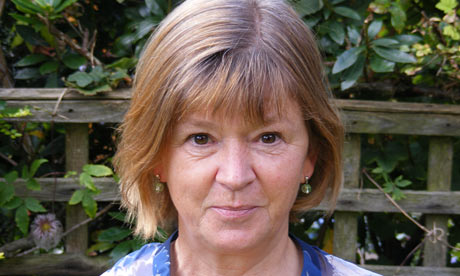
I've been going to the Arthur C Clarke awards ceremony at the Apollo cinema in London for four years now, and have always regarded it as a highlight on the literary calendar. It's somewhere people really care about books – and really enjoy them. It's a celebration: a moment of happy triumphalism for a genre that is growing in confidence and steadily gaining the respect it deserves.
That's the usual story, anyway. This year, however, the atmosphere was different. It was still friendly. It was still enthusiastic. But there was tension in the air, and not just the expectancy and nerves you get before any awards ceremony.
This was partly due to the fact that the award has recently suffered financial difficulties. Previously, it has always been free, but this year tickets had to be paid for. The crowd was consequently smaller and had more vested in the process.
Mainly, though, – as everyone who has followed the award's controversial progress this year will already have guessed – the added excitement came thanks to Christopher Priest.
To recap: shortly after the shortlist was announced this year, the writer (himself a previous winner, and renowned as the author of critically acclaimed bestsellers such as The Prestige) denounced the 2012 shortlist as "dreadful" and called for the resignation of the "incompetent" judges.
Priest's criticism of the panel was mild compared to the missiles he fired at the writers on the shortlist. Charlie Stross, for instance, he described as writing "like an internet puppy: energetically, egotistically, sometimes amusingly, sometimes affectingly, but always irritatingly, and goes on being energetic and egotistical and amusing for far too long. You wait nervously for the unattractive exhaustion which will lead to a piss-soaked carpet".
Stross took the criticism in his stride, and even started selling puppy T-shirts on his website, but from the judges' viewpoint the controversy can't have been much fun. In his pre-presentation speech, chair Andrew Butler joked: "It's been a quiet year"; there wasn't much laughter. He pointedly praised the "brilliant", "professional" people who had whittled down the 60 submitted novels to find a winner, and said: "I could not have asked for five better judges." Afterwards, he maintained that the argumentative nature of the process was "just as it should be". But he also confessed: "I'm relieved that it's over." He looked exhausted. I felt a pang of sympathy.
Naturally, though, from a journalistic perspective, it's Priest's comments that made this year's event so fascinating. They were not only funny, sharp and provocative, but also sparked a discussion about what constitutes a decent science fiction novel, how awards should be judged, and what one can and can't say about writers. It was compelling and brilliant and had an energy beyond even that generated by Dame Stella Rimington's extraordinary speech at last year's Booker. Tom Hunter, the Clarke award's chief organiser, told me the debate generated at least one tweet every minute for six days. The prize was doing just what it should do: stimulating conversation, controversy and interest.
Bravely (especially considering some of the comments directed at him after his swashbuckling blogpost), Priest himself put in an appearance at the Apollo cinema. When I spoke to him after the ceremony, he seemed far from the ogre portrayed in the furious response to his blogposts. He even struck me as rather gentle; possibly nervous to be there, but apparently determined to prove he didn't bear the Clarkes any malice. He also seemed hurt by the idea he had launched his broadside against the judges because his own book, The Islanders, had been left off the shortlist. "I actually saw that as a liberation," he said. "I thought I wasn't bound by politeness then … So I just went for it."
Characteristically, he remained unrepentant. "The judges vindicated themselves after an extremely dodgy process," he said. "The right book won. The only novel that shows real literary ability."
As for that novel, there's no doubting it's an interesting choice. Jane Rogers is better known for writing historical and literary fiction (such as Mr Wroe's Virgins) than SF, and her publisher isn't very well known at all. Sandstone Press is a small operation based in the highlands of Scotland to whom Rogers turned after the book was rejected by nearly every publisher in London. "Nobody wanted it," she told me when she had the award safely in her hands. "So this feels fantastic."
The award also vindicated her decision to "move into the future", and the multi-dimensional possibilities of science fiction. "You can deal with the big ideas. It's a clean slate. When you get rid of contemporary clutter and politics, it allows you to see both the wood and the trees. I love the future," she said.
Happily, her own future now looks more assured than ever. As for the Clarke awards themselves, it's probably too early to comment – but, once the smoke has cleared, I have a feeling this will be remembered as a classic year. Thanks to the controversy, and the reams of newsprint it generated, the award feels more important than ever. In its 26th year, it has properly come of age.

